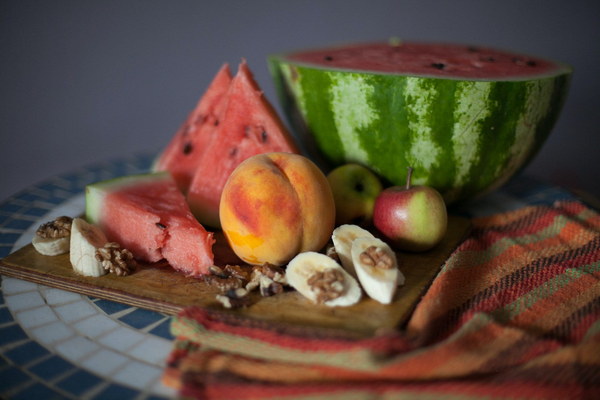Nurturing Eczema A Holistic Approach to Managing and Healing Eczema Through Diet and Lifestyle
Eczema, also known as atopic dermatitis, is a chronic skin condition characterized by inflammation, itching, and redness. It can be quite challenging to manage, but with the right approach, you can significantly improve your quality of life. This article explores the various ways to nurture eczema by focusing on diet and lifestyle adjustments.

Understanding Eczema
Before delving into the nurturing methods, it's essential to understand eczema. Eczema is a complex condition that involves an overactive immune response, leading to inflammation and irritation of the skin. Factors like genetics, environment, and stress can exacerbate symptoms. By addressing these underlying causes, you can take a more holistic approach to managing your eczema.
Dietary Adjustments
1. Eliminate Trigger Foods: Common triggers include dairy, eggs, nuts, soy, gluten, and certain fruits and vegetables. Keep a food diary to identify potential allergens and eliminate them from your diet.
2. Increase Omega-3 Fatty Acids: Omega-3s are known for their anti-inflammatory properties. Incorporate fish, flaxseeds, chia seeds, and walnuts into your diet.
3. Stay Hydrated: Drink plenty of water to maintain healthy skin. Aim for at least 8-10 glasses of water per day.
4. Rich in Antioxidants: Foods rich in antioxidants, such as berries, green leafy vegetables, and dark chocolate, can help reduce inflammation and improve skin health.
5. Avoid Processed Foods and Sugar: Processed foods and excessive sugar can exacerbate eczema symptoms. Opt for whole, unprocessed foods instead.
Lifestyle Adjustments
1. Manage Stress: Stress can trigger eczema flares. Practice relaxation techniques such as yoga, meditation, or deep breathing exercises.
2. Maintain a Consistent Sleep Schedule: Poor sleep can weaken your immune system and exacerbate eczema. Aim for 7-9 hours of quality sleep per night.
3. Regular Exercise: Exercise can improve your mood, reduce stress, and boost your immune system. Aim for at least 30 minutes of moderate exercise per day.
4. Keep Your Skin Moisturized: Use a gentle, fragrance-free moisturizer to keep your skin hydrated and prevent dryness. Apply it immediately after bathing while your skin is still damp.
5. Avoid Harsh Chemicals: Use gentle, natural skincare products and avoid harsh chemicals found in soaps, detergents, and perfumes.
6. Protect Your Skin: Use sunscreen to protect your skin from the sun's harmful rays, which can exacerbate eczema symptoms.
Supplements
1. Probiotics: Probiotics can help improve gut health, which can have a positive impact on eczema. Consider taking a probiotic supplement or consuming probiotic-rich foods like yogurt and kefir.
2. Vitamin D: Vitamin D is essential for skin health. Exposure to sunlight and a vitamin D supplement can help manage eczema symptoms.
3. Zinc: Zinc has anti-inflammatory properties and can help reduce eczema symptoms. Consider taking a zinc supplement or incorporating zinc-rich foods like nuts, seeds, and legumes into your diet.
In conclusion, nurturing eczema involves a combination of dietary and lifestyle adjustments. By identifying and eliminating trigger foods, managing stress, maintaining a healthy lifestyle, and using appropriate skincare products, you can significantly improve your eczema symptoms. Consult with a healthcare professional to develop a personalized plan that works best for you. Remember, patience and consistency are key to managing eczema effectively.









